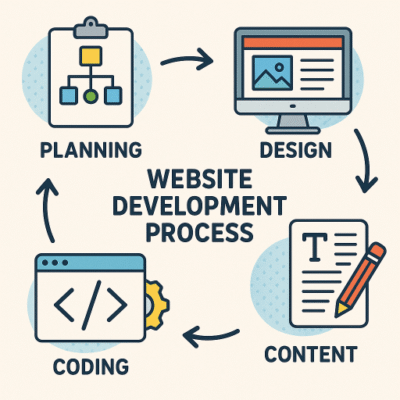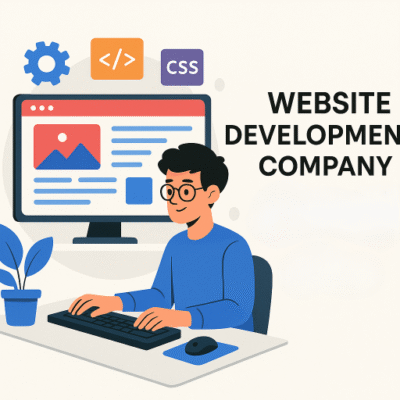We’re living in a time when technology is rewriting the rules of business—fast. No matter the sector, companies are under pressure to innovate, automate, and adapt. At the core of this shift are Digital Transformation Services, which help businesses modernize operations, digitize customer interactions, and leverage emerging technologies like AI, cloud computing, and big data.
Dubai, in particular, is a city that thrives on innovation. With government support for smart city initiatives, fintech accelerators, and healthcare modernization, businesses in the region are leading the charge in digital reinvention. But which industries are experiencing the most disruption? Let’s explore four key sectors—logistics, retail, healthcare, and finance—and see how digital transformation is reshaping them.
Logistics: Smarter, Faster, and Fully Connected
The logistics and supply chain industry has seen some of the most dramatic changes due to digital transformation. Traditional paper-based and phone-call-heavy operations are being replaced with digital workflows, predictive analytics, and Internet of Things (IoT) technology.
Key Disruptive Elements:
-
Real-time tracking: GPS, RFID tags, and IoT sensors allow companies to monitor shipments and inventory down to the minute.
-
Route optimization: AI algorithms analyze traffic, weather, and delivery schedules to reduce fuel use and delays.
-
Warehouse automation: Robotics and cloud-based warehouse management systems (WMS) help streamline inventory control.
-
Predictive maintenance: Machine learning detects patterns in equipment wear and predicts failures before they happen.
For example, Emirates Post and Aramex in Dubai have adopted AI-enabled route mapping and digital delivery tracking, reducing last-mile inefficiencies and improving customer satisfaction. In a highly competitive market, these innovations are no longer optional—they’re essential.
Retail: Personalization and Omnichannel Commerce
Retail has been undergoing a digital revolution long before the pandemic accelerated it. In 2025, the lines between online and offline retail are nearly invisible. Digital-savvy consumers expect seamless experiences across devices, platforms, and stores—and Digital Transformation Services make that possible.
Key Disruptive Elements:
-
E-commerce integration: Retailers use omnichannel platforms like Shopify, Magento, or custom solutions to unify physical and digital stores.
-
AI-powered recommendations: Algorithms analyze shopping behavior to suggest products, boosting upsells and cross-sells.
-
Mobile-first experience: From QR code scanning to app-based purchases, mobile is now the primary point of sale.
-
AR and VR integration: Augmented and virtual reality allow customers to “try before they buy” with virtual fitting rooms or home previews.
Dubai’s malls are going digital too. Brands like Namshi and Noon are leveraging big data and AI to personalize their storefronts and marketing campaigns. Customer journeys are now tailored in real time—whether you’re shopping in-store or via app.
Healthcare: From Reactive to Predictive Care
The healthcare industry in Dubai is evolving rapidly, thanks to significant investment in smart hospitals, health tech startups, and telemedicine. Traditionally burdened by bureaucracy and slow data processing, the healthcare system is moving toward patient-first digital experiences.
Key Disruptive Elements:
-
Electronic Health Records (EHR): Digitally accessible and interoperable patient records reduce errors and improve care continuity.
-
Telemedicine platforms: Remote consultations via secure platforms reduce wait times and expand healthcare access.
-
Wearable health monitoring: Devices track vitals and sync with cloud platforms, enabling early intervention.
-
AI diagnostics: Tools like computer vision are improving early detection of diseases like cancer or diabetic retinopathy.
-
Blockchain for patient data: Secure data exchange systems protect sensitive medical information across healthcare networks.
Cleveland Clinic Abu Dhabi and Dubai Health Authority have implemented AI and IoT tools for enhanced diagnostics, resource optimization, and predictive patient care. These changes not only increase efficiency but also save lives.
Finance: Welcome to the Age of Fintech
Finance is being completely redefined by digital transformation. In a region known for fast growth and regulation-heavy environments, financial institutions are turning to cloud-native, AI-powered, and blockchain-secured platforms to remain competitive and compliant.
Key Disruptive Elements:
-
Mobile banking and digital wallets: Customers open accounts, transfer funds, and apply for credit—all from their smartphones.
-
AI-driven fraud detection: Real-time transaction monitoring systems detect suspicious activity before it becomes a threat.
-
Smart contracts and blockchain: Automated agreements reduce human error and transaction costs, particularly in cross-border trade.
-
Regulatory technology (RegTech): AI tools ensure compliance with regulations like AML, KYC, and international tax laws.
Neo-banks like Liv. by Emirates NBD and digital-first services from Mashreq are rapidly gaining market share, thanks to their frictionless onboarding, app-first interfaces, and real-time personalization. The shift isn’t just about convenience—it’s about fundamentally transforming how financial value is stored, shared, and secured.
The Common Denominator: Data-Driven Agility
While the technologies may differ across industries, the principles of transformation remain the same. Businesses in logistics, retail, healthcare, and finance are being disrupted because:
-
Customer expectations are rising: Today’s users expect personalized, 24/7 service—powered by tech.
-
Data is abundant: With the right analytics, businesses can predict, personalize, and optimize every process.
-
Manual processes don’t scale: Digital workflows enable agility, efficiency, and cost reduction.
-
Security and compliance are non-negotiable: Especially in healthcare and finance, digital systems enhance audit trails and privacy safeguards.
And importantly, Digital Transformation Services help orchestrate these changes—not just by implementing software, but by aligning technology with business strategy, employee adoption, and customer impact.
Final Thoughts
We’re no longer in the phase of digital transformation as a buzzword—it’s a business reality. Industries like logistics, retail, healthcare, and finance are seeing tangible benefits from adopting digital strategies, from higher ROI to improved customer trust and operational resilience.
Dubai is at the heart of this shift. Forward-thinking organizations are leveraging Digital Transformation Services to not only stay relevant but to lead. Whether you’re digitizing a warehouse, building an AI-powered healthcare tool, or automating a retail checkout experience, the time to act is now.



